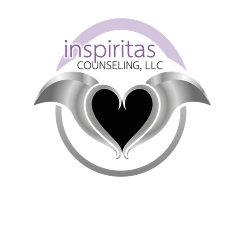
|
Conditions Treated
Anxiety & Panic Attacks
Anxiety and Panic Attacks can be stabilized with or without medication, if the right tools are utilized. I treat these disorders with meditation, Neurofeedback (when needed), CBT or DBT counseling, and sometimes using EMDR. Medication intervention may require MD visits.
Depression & Bipolar Disorder
Depression and Bipolar disorder can be treated with CBT or DBT in combination with medication. Sometimes clients with these conditions have a significant trauma history, and so they may be also treated using EMDR. This treatment is very similar to PTSD treatment. Depending on the elements presented by a client with these conditions, some Neurofeedback and Meditation may be helpful.
ADD/ADHD
Neurofeedback is a tremendous tool in the treatment of ADD/ADHD, and can free a person from needing to be medicated with powerful stimulants. Especially for children through young adulthood, Neurofeedback has been called the “treatment of choice” for ADD/ADHD. Also, because these disorders are multi-faceted, some CBT counseling surrounding organizational skills may be helpful.
PTSD (Post-Traumatic Stress Disorder)
The treatment of PTSD (simple) and PTSD (complex) can itself be complex. I often use a combination of counseling (CBT and/or DBT), EMDR, Neurofeedback, meditation, and internal systems work if needed, along with a narrative approach for memory work, if EMDR is not sufficient. Every PTSD case I have treated has its own challenges. I utilize tools practically, as needed only. Medication may be necessary, so consultation with an MD may be required.
OCD/AVD
Treatment of OCD (Obsessive Compulsive Disorder) and AVD (Avoidant Personality Disorder) also includes an integrative approach, including the QEEG, paper testing, and other assessments. These may lead to the need for CBT/DBT counseling, Neurofeedback, meditation, and possibly EMDR to improve motivation to recover, and to replace negative schemas with more positive ones.
Chronic Illness
Chronic Illness is best treated with a combination of CBT/DBT counseling and group process counseling, in an effort to engender hope for the client. Meditation may be helpful if there are significant sleep issues. Here also is a place where discussion about spiritual issues invoked by chronic illness may be a worthwhile topic, if the client desires to delve into this aspect.
EMDR (Eye Movement Rapid Desensitization Reprocessing)
EMDR has experienced growing use in the past several years. This technique can be useful in improving motivation and peak performance, and in the treatment of anxiety, depression, and PTSD. This specialized skill can help with many issues.
Sleep Disorders
Many times when I see clients with severe sleep disruption, I may first recommend a sleep study. If there is nothing conclusive in the sleep study, I will recommend the QEEG (see Neurofeedback section) so that we can see what frequencies the brain is maximizing while the brain is in the eyes-closed state. Sleep problems are common for clients with depression, anxiety, TBI, PTSD, and the chronically ill. If the client does not want medication treatment, the use of Neurofeedback may provide a better “state” for the brain to be in when the eyes are closed for sleep.
|
|
Lee Anne Covert Smith MA, LPC Colorado Springs, Woodland Park, Divide, Green Mountain Falls, Cascade, Florissant P.O. Box 907 Divide, CO 80814 (719) 332-4780 |

|
Inspiritas Counseling, LLC
|
|
Copyright 2008, All Rights Reserved |
|
(a Sondermind Practice) |